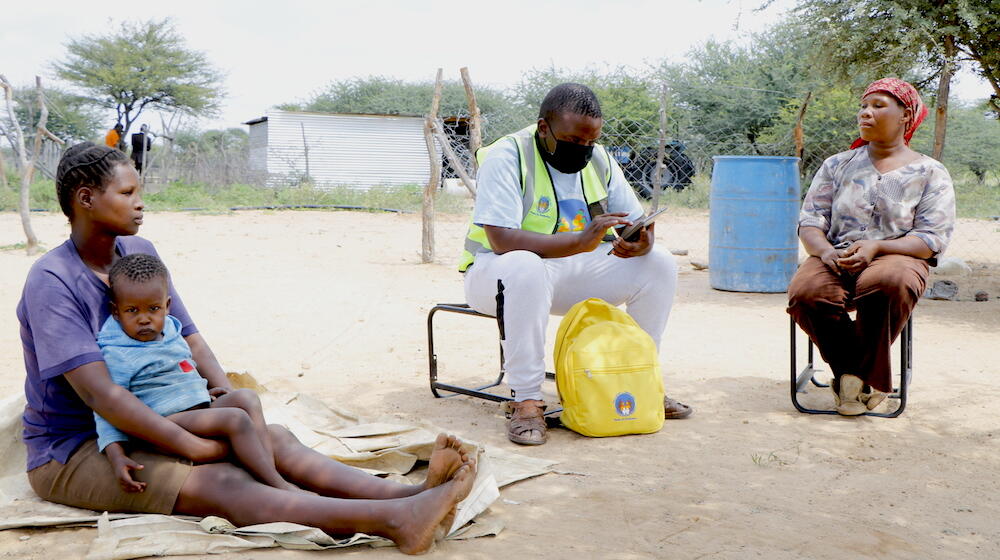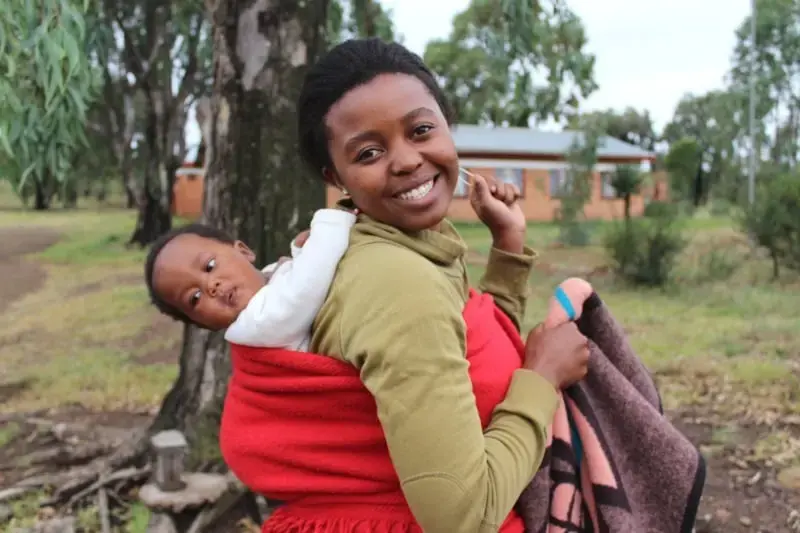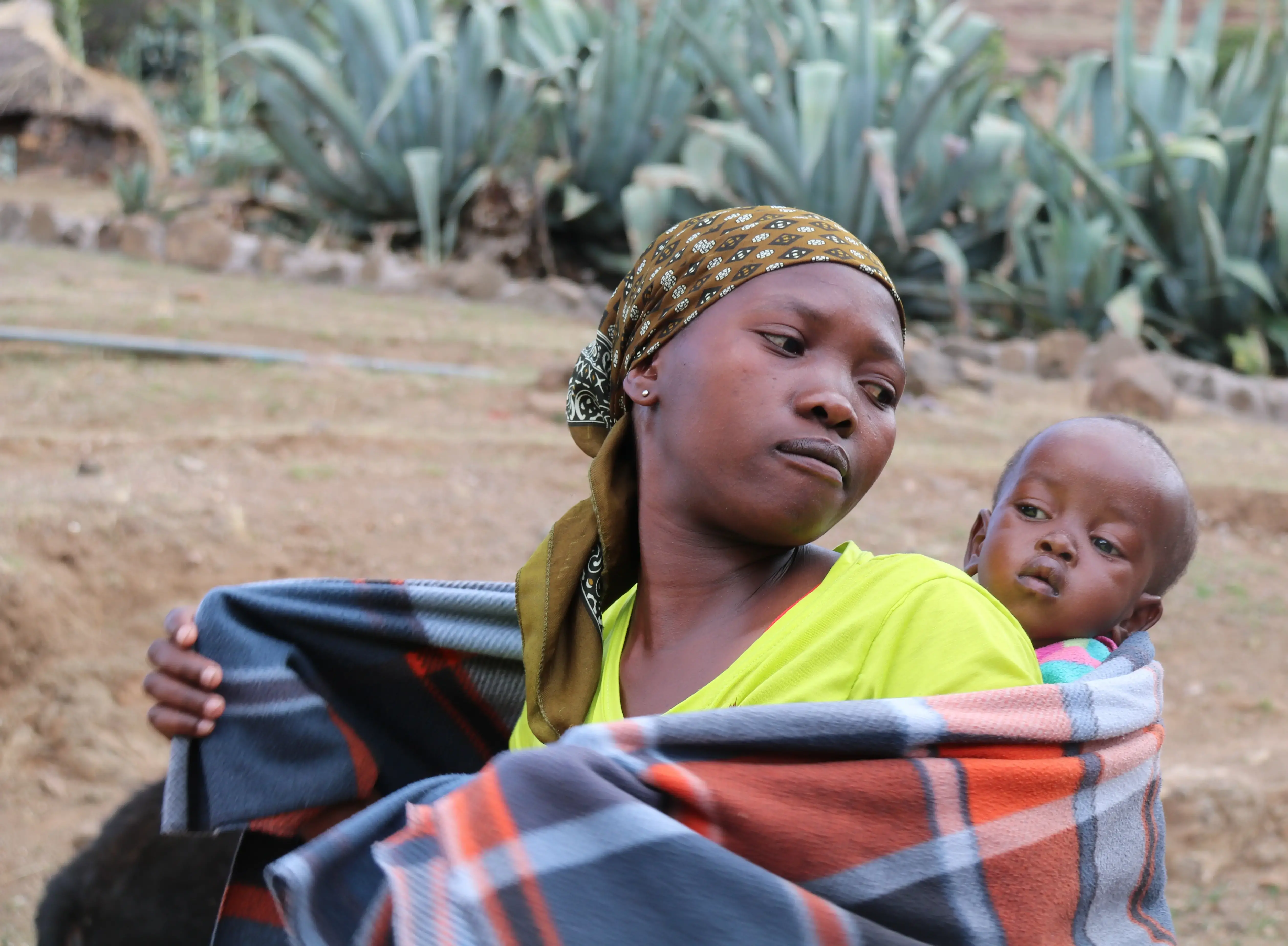GABORONE, Botswana – Segolame Bolosaka, 23, a young mother of two and with a third child on the way, works with her partner on a farm and lives in Kgare, a small settlement with no clinic, school or running water. She travels by donkey cart to the nearby village to access health services – and hopes Botswana’s first digital census will bring development to her area.
In March this year, Botswana's inaugural paperless census began, using computer-assisted personal interviewing (CAPI) instead of a paper-based questionnaire to collect data. With CAPI, data collection takes less time – an attractive feature for both the people being counted and the census enumerators.
Data from the census will be used for evidence-based policy and strategy formulation, including the development of the new National Development Plan 12, a review of the national Constitution, and monitoring of the country's progress on achieving the Sustainable Development Goals.
I've heard information on the census, but I am not interested, because I do not understand its purpose.
Before this census, Keolebale Morolapula, 65, a resident of another small village, Ditshegwane, did not know the importance of being counted.
“I've heard information on the census, but I am not interested, because I do not understand its purpose. Why should I be counted when it does not bring any difference in my life?” she asked.
After being made aware of the benefits by the enumerator, she, too, hopes it will result in greater development in Ditshegwane. In particular, she hopes her seven children will be allocated land so they can have decent housing.
Earlier this year, a census publicity and public education campaign was launched and groups of people, including community leaders, were enlisted to mobilize communities to take part in the census. This built confidence and trust in the survey process and the enumerators.
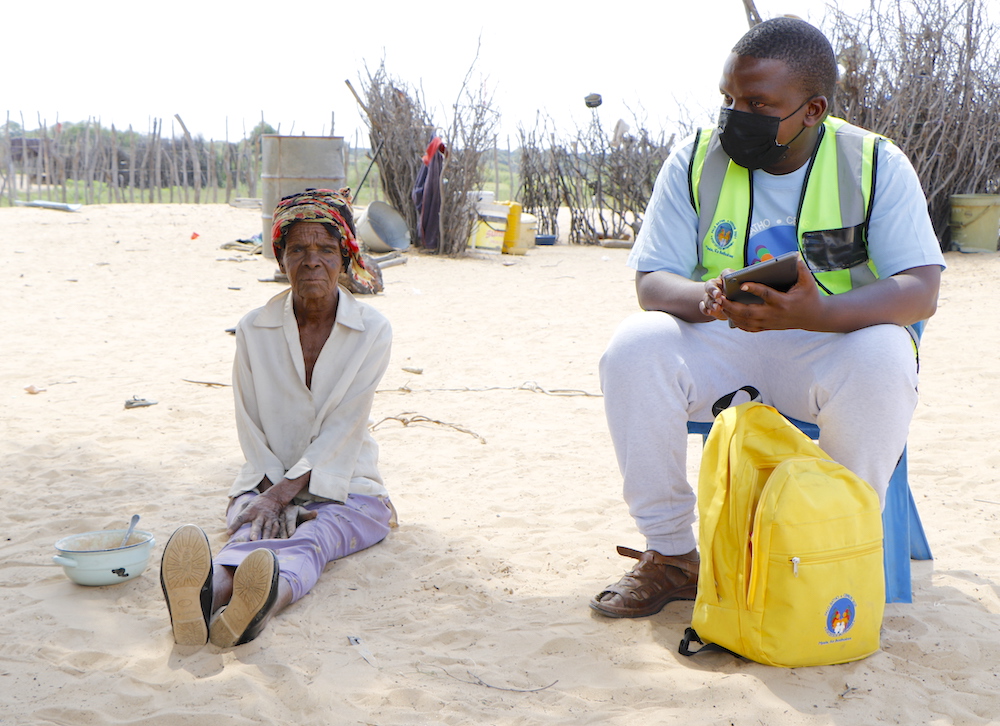
Challenges for Botswana's enumerators
Because Botswana is a large, sparsely populated country, census enumerators like Sakarea Lepono often walk long distances – at times, deep in the forest, or in scorching temperatures – to reach each and every household.
In a remote area such as Ditshegwane, Mr. Lepono travels to farms neighbouring his target households, where most people are to be found during plowing season. It means he often has to cover up to 20 kilometres in a day.
Yesterday, I had to accompany a female colleague to a very remote place because she couldn't walk alone in the forest.
“Yesterday, I had to accompany a female colleague to a very remote place because she couldn't walk alone in the forest," he says. This is not an isolated experience – many enumerators walk long distances to reach widely scattered villages. Once they reach them, the communities are welcoming and responsive, even where they do not yet understand the importance of the census.
Why census data is critical for development
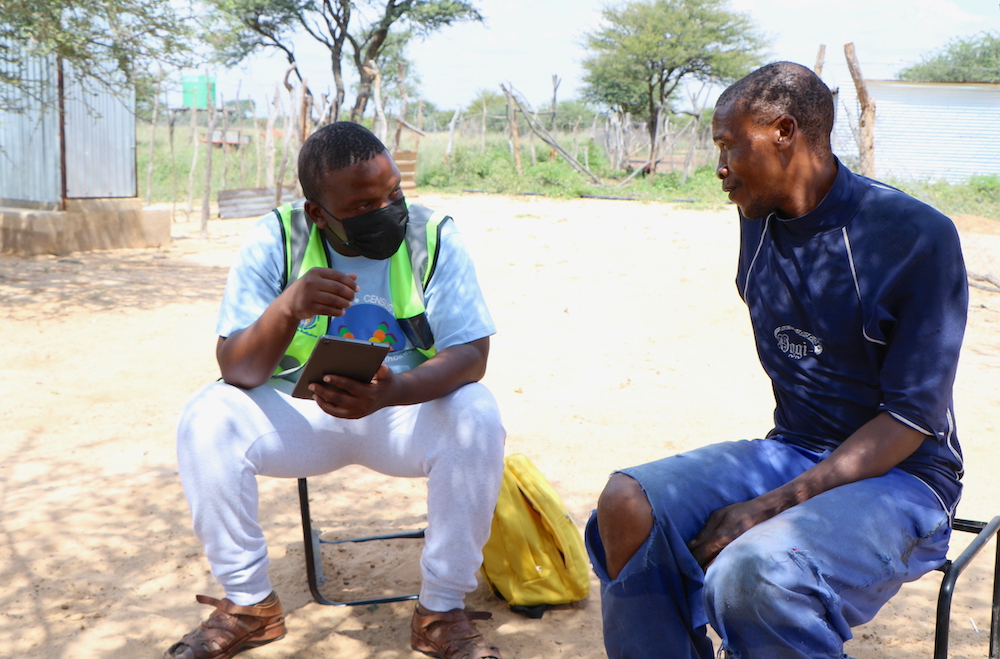
A census involves the collection of demographic, economic and social data and information on all those who live in a country. The information generated by a population and housing census is key for development, as up-to-date and reliable national data on population is critical for evidence-based planning and decision-making. Without accurate data on the number of people, their distribution and their living conditions, policymakers do not know where to invest in schools, hospitals and roads. Those most in need remain invisible.
"One of the development challenges that Botswana faces is the limited availability of quality and disaggregated data for evidence-based planning and monitoring, and evaluation of programmes," said Boago Makatane, UNFPA's Strategic Information Specialist. “The data from the census are expected to not only improve data availability, but also serve as a mechanism for calibration or quality assurance of future intercensal surveys.”
In the Decade of Action, census data will contribute to the establishment of baselines for some of the SDG indicators, while updating progress.
Up-to-date population data is also vital for monitoring the country's progress on the Sustainable Development Goals (SDGs). “Approximately 98 of 232 SDG indicators require population data for their calculation. In the Decade of Action, census data will contribute to the establishment of baselines for some of the SDG indicators, while updating progress.”
A census is a unique source of information on the needs of the most vulnerable and marginalized groups. These data are even more important in the face of a pandemic, when the provision of emergency medical facilities requires data on the affected populations, to ensure that no one is left behind.
UNFPA support to census taking
UNFPA supports advocacy for successful census taking, provides technical assistance and oversight, and helps mobilize resources, to ensure that the census implementation follows the United Nations Principles and Recommendations for Population and Housing Censuses for the 2020 Round of PHCs.
Apart from providing capacity building and technical assistance to the census process since 2019, UNFPA procured 100 tablets for Statistics Botswana for the pilot census. “We are proud to support the 2022 census, as we recognize the value of data and accurate information to assist in decision making," said Ms. Makatane.
The census ended on 4 April and preliminary results were released on 10 May.

